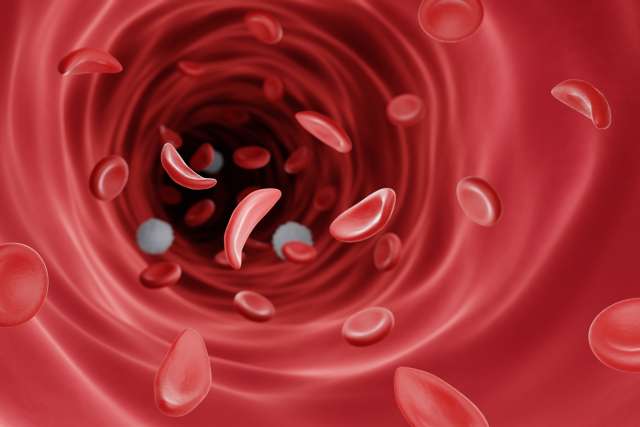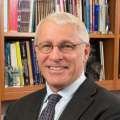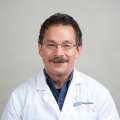Scientists at UCLA's Jonsson Comprehensive Cancer Center have initiated a phase 1 clinical trial to test a novel cancer treatment for certain kinds of cancers that have a specific tumor marker called NY-ESO-1. Directed by Dr. Antoni Ribas, the trial is the first to genetically engineer blood-forming stem cells to produce cancer-fighting white blood cells called T cells, which constitute part of the immune system.
NY-ESO-1 is a protein produced by tumor cells such as melanoma (a type of skin cancer), sarcoma (a group of cancers that arise in the bones and connective tissue such as fat and muscle), and many other types of cancers. Ten to 20 percent of all cancers have the NY-ESO-1 tumor marker; it is most common in people with synovial sarcoma. The expression of NY-ESO-1 almost exclusively occurs in cancer cells, making it a perfect target to train the patient’s immune system to find the tumor cells and eliminate the cancer.
“Many cancers can be treated with drugs that target specific properties or weaknesses in cancer cells as well as drugs that unleash the immune system against cancer,” said Ribas, a professor in the UCLA David Geffen School of Medicine departments of medicine, surgery, and molecular and medical pharmacology and a member of the UCLA Broad Stem Cell Research Center. “But few options exist for the treatment of patients whose cancers have metastasized due to resistance to current therapies. This clinical trial will allow us to try a new approach that engineers the body’s immune system to fight metastasized tumors similar to how it fights germs and viruses.”
The clinical trial is funded by a $20 million grant from the California Institute for Regenerative Medicine— also known as CIRM—and support from the UCLA Broad Stem Cell Research Center. The trial, also supported by the CIRM-funded UCLA-UCI Alpha Stem Cell Clinic, received approval from the U.S. Food and Drug Administration to begin enrolling patients in August 2017.
The trial will treat people with tumors that have metastasized, meaning the cancer has spread to other parts of the body from its initial location. Participants must meet several criteria to be eligible for the trial, including: testing positive for the NY-ESO-1 tumor marker and testing positive for a specific type of immune system called HLA-A2.1. Approximately 40 percent of the major western world ethnicities have the HLA-A2.1 immune system type.
The clinical trial involves a dual approach intended to provide patients with both short and long-term immune response to the cancer. Mature T cells, as well as blood-forming stem cells—which continually create all types of blood cells including T cells—will be collected from each participant’s blood. In the laboratory, the research team will insert a gene for a receptor to the cancer marker NY-ESO-1 into the participants’ own blood-forming stem cells. It is expected that the genetically modified stem cells will generate a continual supply of T cells that are programmed to recognize and kill the cancer by identifying cells with NY-ESO-1. It takes time for these T cells to mature, so to provide a population of immediately available cancer-fighting cells, the team will also genetically modify each patient’s own mature T cells to recognize the NY-ESO-1 tumor marker.
Trial participants will receive their genetically modified blood-forming stem cells and mature T cells in a single transplant. Ribas has shown in previous clinical trials that this initial force of modified mature T cells provides an immediate treatment. While the modified mature T cells fight the cancer immediately, the modified blood-forming stem cells will have sufficient time to generate an on-going supply of new modified T cells, resulting in a lasting immune response to the cancer.
Engineering T cells with specialized cancer-fighting receptors is already a promising area of cancer research. This method—known as adoptive T cell immunotherapy—typically involves collecting T cells from the circulating blood of patients with cancer, engineering the T cells in the lab with a cancer-finding receptor and transfusing the modified cells back into the patient. This produces a short-term immune response that effectively reduces cancer cells. However, adoptive T cell immunotherapy has limitations: people with cancer might not have enough T cells for the approach to work and once transplanted back into patients, the number of modified T cells declines over time since they cannot self-renew and often the cancer recurs.
“Clinical trials using adoptive T cell immunotherapy have shown remarkable results in some patients,” said Dr. Hu-Lieskovan, assistant professor of medicine in the UCLA David Geffen School of Medicine and co-investigator in the trial. “Engineering a patient’s own blood-forming stem cells to produce a continual supply of the T cells needed to attack cancer for a prolonged period could help us overcome the challenges and limitations with the current method.”
The trial will also use positron emission tomography (PET) scanning, which is a noninvasive imaging technology that scans for diseases in the body and shows how organs and tissues are functioning. Each trial participant will undergo regular scans to track the engineered blood-forming stem cells and T cells to make sure the cells function as intended. If the cells behave abnormally, a drug can be administered to kill only the engineered cells. This part of the trial helps to ensure the safety of the patients.
“My hope is that the therapeutic principles and procedures developed in this trial will be applicable to a wider range of cancers in the future,” said Ribas.
The trial includes a multi-disciplinary team of renown researchers from several institutions: Nobel laureate David Baltimore, president emeritus and Robert Andrews Millikan professor of biology at the California Institute of Technology; Dr. Donald Kohn, professor in the UCLA departments of pediatrics, microbiology, immunology and molecular genetics, and molecular and medical pharmacology and a member of the UCLA Broad Stem Cell Research Center; and Dr. Owen Witte, university professor of microbiology, immunology and molecular genetics and founding director of the UCLA Broad Stem Cell Research Center. Hu-Lieskovan, Kohn and Witte are all members of UCLA's Jonsson Comprehensive Cancer Center.
To learn more about this clinical trial, visit its page at clinicaltrials.gov. If you think you might be eligible to enroll, please contact Clinical Research Coordinator Justin Tran by email at [email protected] or by phone at (310) 206-2090.






